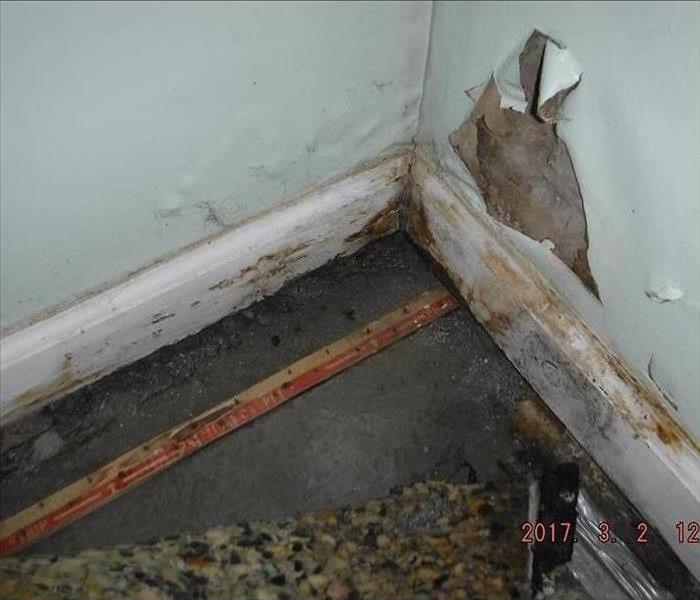Should You Sue Your Landlord Because of Black Mold?
5/13/2020 (Permalink)
When is black mold serious enough to sue your landlord? When you believe your Newtown, PA, rental property has mold, it's important to notify the property owner as soon as possible. If the owner doesn’t take appropriate action, it is possible that you have a case.
How Can You Tell If You Have a Mold Problem
Strange, unpleasant odors
Visible blossoms or staining
A source of moisture, such as leaks or condensations
When mold is allowed to grow throughout a property, it can cause long-lasting damages. With this in mind, it's really in the best interests of the owner to schedule mold remediation.
Implied Warrant of Habitability
In many states, the laws regarding black mold are confusing or vague. However, property owners are required to provide livable conditions for their tenants. This means the property must be free from health and safety hazards. The presence of condensation on the windowsill doesn't affect habitability, but a serious presence of mold may, especially if it has affected the plumbing.
Before You Consider a Lawsuit
When you first discover mold, contact the property owner; do this in writing, so you establish a record of communication. If the owner fails to act, you may need to pay for an inspection and testing. If the findings verify your concerns, you may recoup your costs through the lawsuit. Landlords have a legal responsibility to remove mold and pay for additional costs you sustained, so keep a careful written record of every time you contact your landlord and other professionals, including medical professionals.
When the Property Owner Fails To Act
If the property owner fails to respond appropriately, a lawyer may be able to help you. Your written records of communication and repairs can help you establish your claim. Be sure to include receipts from inspectors and mold remediation professionals. The steps you take have a big impact on the results of your lawsuit.




 24/7 Emergency Service
24/7 Emergency Service
